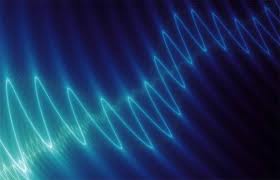MSc Signals and Systems
MSc Signals and Systems
Starting September 2026, this MSc track is superseded by MSc SNS.
The MSc EE program in Signals and Systems is provided by several groups from the faculties EEMCS and 3mE that are involved in signal processing related research. The program takes 24 months and is fully conducted in English. It offers challenging high-level education and research to talented students holding a BSc degree in technology or science.
Signal analysis and processing plays an important role in integrated electronic systems, being crucial to the acquisition of signals and the extraction and interpretation of the information the signals are presumed to carry. Signal processing is also used to interpret the nature of physical processes based on the observation of either a signal or the manner in which the process alters the characteristics of a signal. Electrical engineers who specialize in signals and systems design and develop electronic systems over a wide range of applications. Examples include the development of medical equipment, audio processing devices, wireless communication systems, radar and remote-sensing systems, large antenna-arrays for radio astronomy, and control systems.
The Master of Science programme in Electrical Engineering at TU Delft offers the track Signals and Systems. In this MSc track, you will be trained to develop and apply theory and algorithms in the broad field of signal processing and system design. The programme offers you the possibility to specialize more specifically in any of several particular aspects of signal processing, including audio and acoustic signal processing, signal processing for communications, biomedical signal processing, signal processing for remote sensing and radar systems, and signal processing for control systems. When selecting courses and a graduation project, you can choose out of several specialisations. Graduation work can be done either at Delft University, or in industry and other (international) universities.
Several laboratories are involved in the MSc program Signals and Systems:
- Signal Processing Systems (faculty EEMCS),
- Microwave Sensing, Signals &Systems (faculty EEMCS),
- Delft Center for Systems and Control (faculty 3mE).
The career prospects for Signals & Systems graduates are very good. There is a close connection between TU Delft and the Industry. During your studies you will get the opportunity to get in contact with high tech companies via internships and thesis projects, but also via the EEMCS recruitment days and the technical career fair where you can get your first job interviews.
With their solid theoretical and engineering background, graduates of the program have a broad selection of career paths in both the academic and the industrial domains. The program provides an excellent foundation for careers in research, development and consultancy, as well as for commercial and management positions. Our graduates are working in mid-sized and large companies as researchers, developers and consultants. Many have built their careers in commercial and management positions. They have found employment opportunities in prominent firms that are active in the Netherlands (e.g. Philips, Bosch Security Systems, ASTRON, Ericsson, TNO and ASML), as well as in global firms, including hearing-aid producers Oticon and Siemens, mobile phone manufacturers (e.g. Nokia, Samsung and Ericsson) and other highly regarded firms (e.g. Google, NXP Semiconductors and Bang & Olufsen).
Program Goals
The fundamental goal of this MSc program is to train students to become independently thinking and broadly developed professionals that are able to solve future problems using novel concepts, by offering thorough fundamental knowledge and by involving them in cutting-edge research programs in a stimulating environment.
Scholarships
The Department of Microelectronics offers a number of scholarships which are available for students of proven excellence. These scholarships include:
- Full tuition fees for the TU Delft MSc programme and contribution to living expenses for 2 years. To be considered for these scholarships, your complete application for the MSc programme needs to be uploaded before December 1st.
Apart from scholarships other forms of financial support exist. If their thesis project is carried out at a company, students usually receive a stipend that covers part of their living expenses. Also students can earn some money as part-time Teaching Assistants.
Common core courses
Common core for all EE/CE programs
Track core courses
Introductory courses for the S&S track
Specialization courses
Suggested specialisation courses
Free electives
Graduation project
Thesis project, in the form of a research assignment
Contact person
dr. Raj Thilak Rajan
Track coordinator
See also
External link